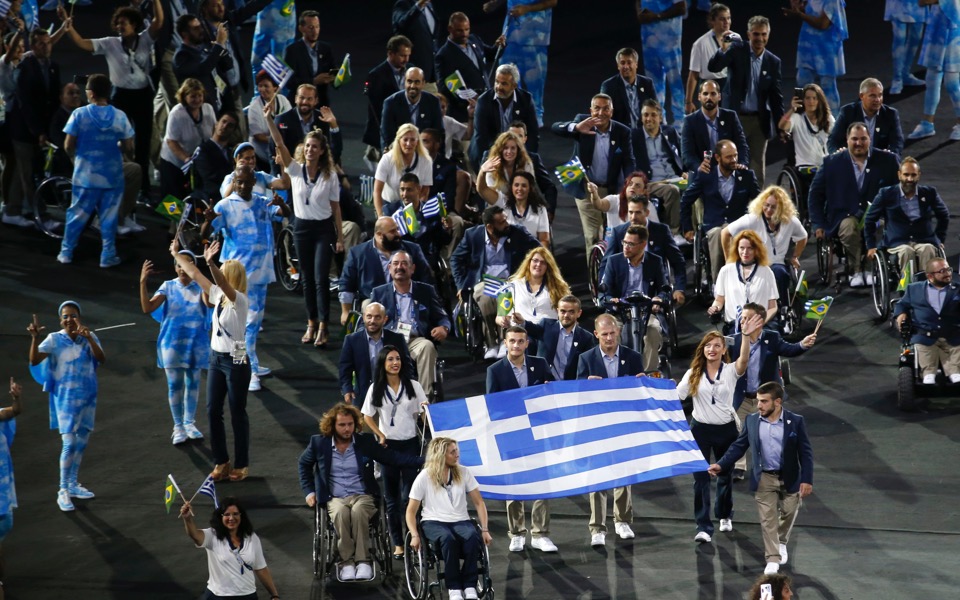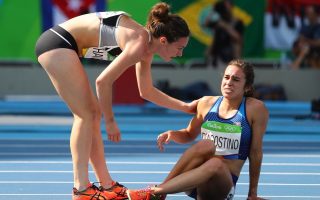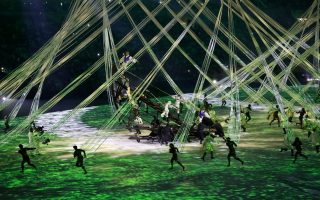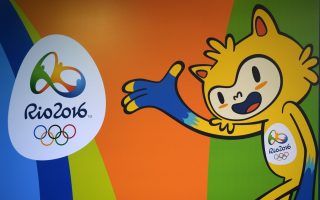Those who bring change and those who watch

Athanasios Konstantinidis on Thursday won gold and Dimitris Zisidis took bronze in the shot put, giving the Greek team an ideal start to the Paralympic Games in Rio. Both took part in the same event in the F32 category for people with impairments that typically affect the ability to control legs, trunk arms and hand function.
The Greek team comprises 13 women and 41 men, and is much smaller than the teams in London 2012 (62 athletes), Beijing 2008 (67) and, of course, Athens in 2004 (124). Greece’s best year, in terms of medals, was 2008, with five gold, nine silver and 10 bronze. Let us hope that this year’s team will enjoy a good harvest of medals and the satisfaction of putting up a great effort, of overcoming all the difficulties in their way.
It is certain that in Rio we will again see the spirit of human resilience and grandeur – as the Brazilian former Paralympic athlete Marcia Malsar showed at the opening ceremony. As she shuffled through heavy rain into the packed stadium, the Olympic Torch in one hand and a walking aid in the other, she slipped and fell. As thousands of spectators and a billion television viewers watched, Malsar, who had won the 200-meter race in 1984, struggled to her feet and continued onward as the stadium shook with cries of encouragement. The moment distilled every effort by every human to endure, to accomplish his or her mission. This was not about the Paralympics or the Olympics, this was about the human spirit not accepting obstacles.
Some 4,350 athletes from 160 countries are competing for 528 medals in 22 sports. The Games are plagued by problems and cutbacks and there were fears that interest would be small. As the first hours showed, however, when the Games begin they are breathtaking. For a while we forget all the difficulties that the athletes face in their daily lives.
This is perhaps the deeper message of the Paralympics: our societies (to varying degrees) are hypocritical. We are moved by the athletes’ struggle but we do not do enough to integrate people with problems to the degree that we could. In Greek cities, if we look around we see the results of indifference: sidewalks and ramps are often blocked by parked cars and the traffic police do not tow them away.
When we consider how little we do to help other people, let us remember a young volunteer orderly in a German hospital during World War I, who was moved by the plight of a miner who was paralyzed by a back wound and was left to die. When Ludwig Guttmann, who had become a neurologist, was forced (as a Jew) to flee the Nazis to England in 1939, he used competitive sports to encourage veterans with disabilities to avoid confinement. The first such games were among a few contestants in a hospital at the time London was staging the 1948 Olympics.
Dr Guttmann did not leave things as they were. He made the start. The rest is up to us.





